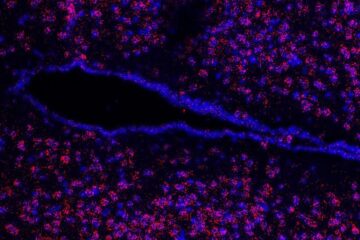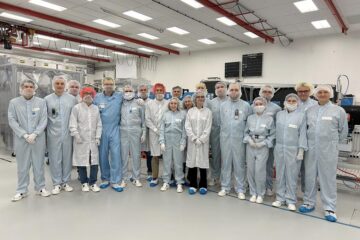Beaumont study: Nerve stimulation helps with overactive bladder

Beaumont Health System research finds that symptoms of overactive bladder, or OAB, were reduced in those who received tibial nerve stimulation. The three-year results published in the June issue of The Journal of Urology show participants with urinary frequency, urgency and involuntary loss of urine maintained significant improvement in their symptoms.
Tibial nerve stimulation is a painless procedure that takes place in an outpatient setting. A slim needle electrode is inserted in the ankle, near the tibial nerve. It carries electric impulses from a hand-held stimulator to the nerves in the spinal cord that control pelvic floor function.
Principal investigator Kenneth Peters, M.D., chief of Urology at Beaumont Hospital, Royal Oak and a team of researchers reviewed data of 29 patients who initially responded to 12 weekly neuromodulation system treatments for OAB. Study participants were followed for three years.
Participants received an average of one tibial nerve treatment per month. After 14 weeks of treatment, 77 percent of patients maintained “moderate or marked improvement” in OAB symptoms.
For those who participated in the study, results show frequent trips to the bathroom during the day decreased by nearly 30 percent, or from 12 to 8.7; nighttime trips decreased by almost 40 percent, or from 2.7 to 1.7; and urge incontinence episodes per day decreased by 100 percent.
“This study demonstrates that with ongoing therapy, patients with overactive bladder can have fewer symptoms and can return to daily activity without disruption or embarrassment that is often caused by this condition,” says Dr. Peters.
According to the Urology Care Foundation, about 33 million Americans – men and women – have OAB. The number of people diagnosed with OAB may be much larger because many people living with this condition don’t ask for help; they are embarrassed or unaware of available treatments.
About Beaumont Urologic Care
Beaumont urologists offer endoscopic, robotic and laparoscopic surgical options as well as traditional surgeries. They also specialize in treatment for kidney stones; painful bladder conditions such as overactive bladder and incontinence; sexual dysfunction; urologic cancer; prostate conditions; male infertility; voiding dysfunction; and erectile dysfunction. In 2010, Beaumont opened a Women’s Urology Center, the first center in the Midwest dedicated and designed for women’s urological care and sexual dysfunction. Beaumont, Royal Oak is ranked on U.S. News & World Report’s “America’s Best Hospitals” 2012-13 list for urology. Find out more at http://www.beaumont.edu/urology.
Media Contact
More Information:
http://www.beaumont.eduAll latest news from the category: Health and Medicine
This subject area encompasses research and studies in the field of human medicine.
Among the wide-ranging list of topics covered here are anesthesiology, anatomy, surgery, human genetics, hygiene and environmental medicine, internal medicine, neurology, pharmacology, physiology, urology and dental medicine.
Newest articles

New regulator of eating behaviour identified
The rapidly escalating prevalence of overweight and obesity poses a significant medical challenge worldwide. In addition to people’s changing lifestyles, genetic factors also play a key role in the development…

Harnessing Machine Learning for Breakthroughs with High-Power Lasers
A team of international scientists from Lawrence Livermore National Laboratory (LLNL), Fraunhofer Institute for Laser Technology ILT, and the Extreme Light Infrastructure (ELI) collaborated on an experiment to optimise high-intensity…

AI – Avalanche Intelligence at the SLF
Machine-trained algorithms assess the current avalanche situation in a similar way to humans – with different approaches, strengths and weaknesses. This text has been translated automatically. Forecast for Saturday, February…





















